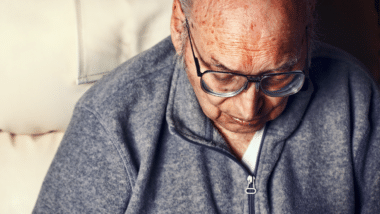Nearly two-thirds of independent adult hospices face financial difficulties as Peers scrutinise plans to allow state-funded assisted suicide.
According to the National Audit Office (NAO), the sector recorded a £78 million funding deficit in 2023-24, with eleven such hospices reporting service reductions or staff redundancies.
The NAO found that in 2023-24, independent adult hospices provided around 251,000 people with palliative and end-of-life care. There are currently 135 independent adult hospice charities in England, including Marie Curie and Sue Ryder.
‘Downward trend’
In its report, the NAO anticipated a rise in demand “for adult palliative and end-of-life care” due to a projected 21 per cent increase in registered deaths in England between 2023 and 2044.
Yet it found that the “independent adult hospice sector’s overall fund-raising rate of return has been decreasing since 2021-22, decreasing to £1.96 per £1 spent in 2023-24”.
It added: “If this downward trend continues, the sector will have less total income to fund its palliative care services and hospices will become, in general, more reliant on government funding if they are to maintain their levels of service.”
During the reporting period, the NAO calculated that “Government funding accounted for just over 40% of the independent adult hospice sector’s service delivery spend”.
‘Killing patients’
Writing in The Daily Telegraph, Lord Young of Acton recently contested the claim of Lord Falconer, sponsor of Kim Leadbeater MP’s assisted suicide Bill in the Upper Chamber, that the plans would ‘improve palliative care’.
He warned: “Those hospices that cannot or will not help patients kill themselves may have their funds withdrawn and end up closing. As hospices derive most of their funding from donations, it’s likely that donations will fall as donors will not want their money going towards killing patients.”
In September, Hospice UK Chief Executive Toby Porter warned that 40 per cent of its members face having to make cuts next year because of increased costs.
He commented: “Hospice UK is neutral on the principle of assisted dying, but considers well-funded palliative care to be a vital safeguard should assisted dying be introduced.
“What would it say about us as a country if someone decided to opt for an assisted death because they were worried that they wouldn’t be able to get the care they needed to control their pain or manage their symptoms, or that their family wouldn’t be properly supported?”
Evidence
Last year, bioethicist Professor David Albert Jones found “clear evidence” of harm in the quality and provision of end-of-life care following the introduction of assisted suicide or euthanasia in other countries.
In his review of data between 2012 and 2019, Prof Jones found that the 20 countries in Western Europe without assisted suicide increased end-of-life funding by 25 per cent.
During the same period in Belgium, the Netherlands, Luxembourg and Switzerland – countries where assisted suicide is legal – funding only grew by 7.9 per cent.
In 2022, the UK was ranked top in an international investigation into ‘the quality of death and dying’ in 81 jurisdictions.
Expert witnesses expose multiple gaps and failings in assisted suicide Bill
Experts warn House of Lords Committee about assisted suicide dangers


